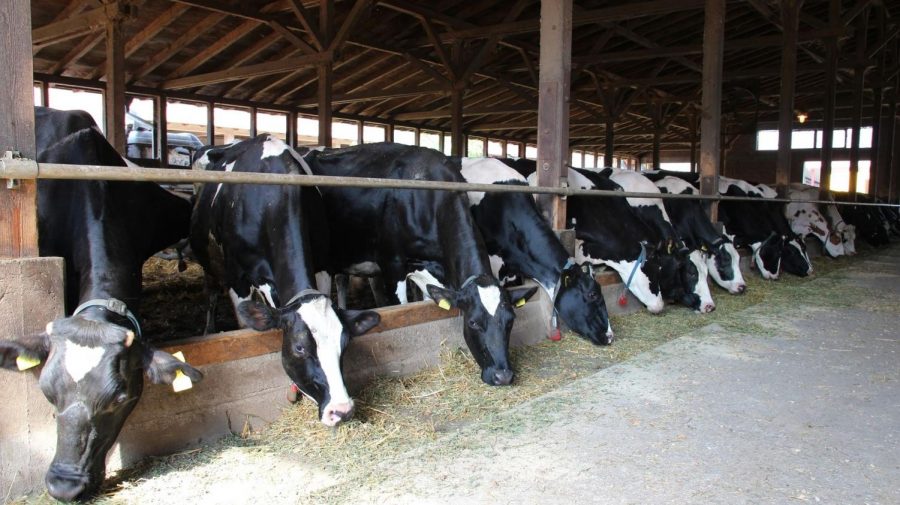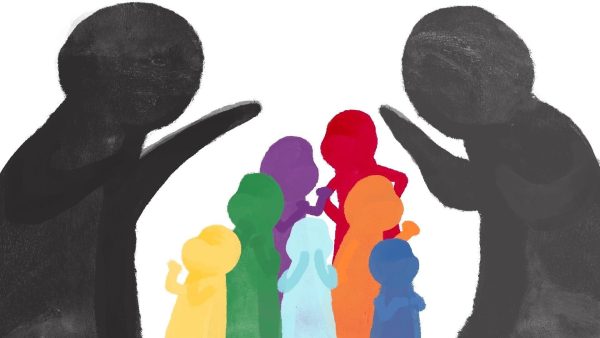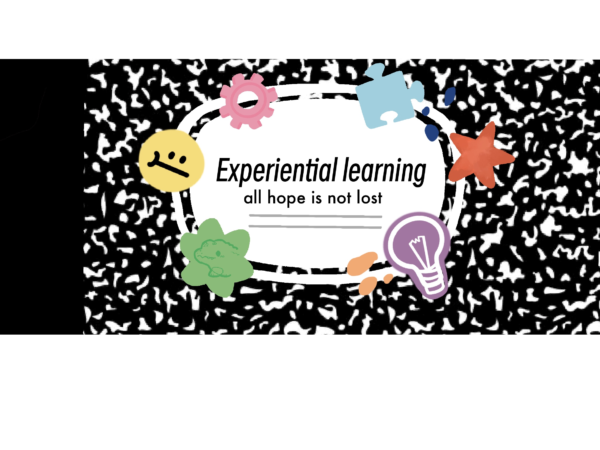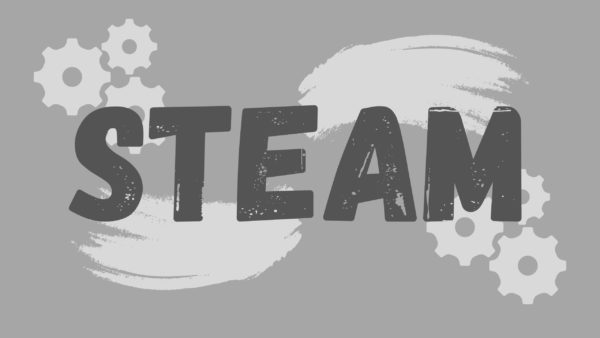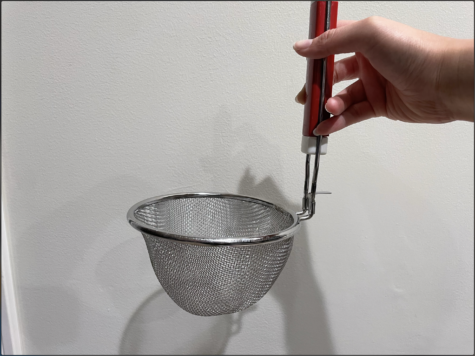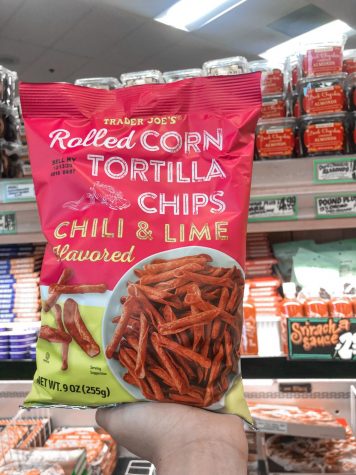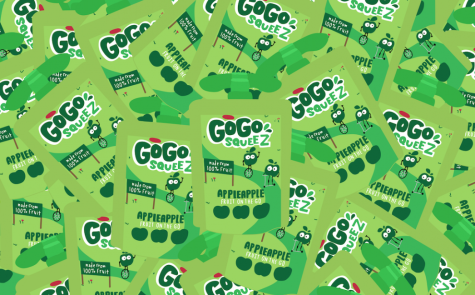The problem with eating animals
The cows in the barn eat in cramped and non-eco-friendly conditions
Today is my last day of living. I am shoved on a big overcrowded truck, and I hear the doors slam shut behind me. The summer heat drains my body of water, as the inside of my mouth foams from thirst. But they deprive me of water and food; my whole life, I haven’t eaten anything but soy, corn, wheat, and antibiotics that made me grow faster and bigger at an unhealthily rapid pace. They deprive me of my family, whom I have never really met. They deprive me of space; I roll around in my own nauseating excrement, as there is no space to move away from it. Here, my only identification is a pink streak of paint on my body and numbers carved into my skin. In a couple of hours, I will be electrocuted, have my throat cut, and be torn apart.
This is a story of a pig who was raised on a factory farm to be slaughtered for human consumption. That’s right. The story of your bacon that you ate this morning. Maybe you thought it was delicious. But have you ever recognized exactly the gruesome story and major consequences behind that slice?
Every year, approximately 77 billion land animals are killed for food, according to an FAO stat in 2013. Almost all of these animals are raised in overcrowded and filthy factory farms. Their lives are filled with torment and fear, as they are mangled and stuffed into wire cages and metal crates. They face extremities such as having no food, water, rest, and fresh air. Animal Ethics notes that many animals are completely conscious as their throats are cut, and some are still conscious while they are ripped apart and soaked in burning hot water. Marc Bekoff, a biologist, argued, “Mammals share the same nervous system, neurochemicals, perceptions, and emotions, all of which are integrated into the experience of pain.” Would you enjoy going through this painful process? Why should animals be forced to suffer in order to please humans’ desires? Breeding animals in terrible conditions, depriving them of their necessities, and killing them after years of torturing for your pleasure is malevolent and unethical.
In addition to the ethical issues of animal consumption, environmental issues need to also be considered. FAO acknowledged that “the livestock sector emerges as one of the top two or three most significant contributors to the most serious environmental problems, at every scale from local to global.” The World Vegan Foundation found that one single person going vegan can save 219,000 gallons of water in a year, as “animal agriculture is responsible for 55% of US water consumption.” Secondly, manure contributes to worsening pollution. The Ferguson Foundation measured that a cow produces about 65 lbs of manure daily, which ends up in rivers, polluting the land and air. PETA states that the manure pollution can cause “inflammatory, immune, irritation and neurochemical problems in humans.” On top of that, they found that livestock farming produces more greenhouse gases than all transportation systems combined. Shifting to a plant-based diet is crucial for helping with climate change, pollution, and water shortage.
By reducing your animal consumption, you will not only help the animals and environment, but the overall health of your body will drastically improve. Meat, eggs, and dairy contain high levels of cholesterol and saturated fat, which can lead to cardiovascular diseases. The nutrients from these foods such as iron, protein, calcium, etc. can also be found in the vegan diet. For example, meat is known to have high levels of protein, but almonds, oats, and lentils have exceedingly high levels as well. Iron can also be found in beans, lentils, tofu, and whole-grain bread. Therefore, animal products are not necessities, and avoiding them would be significantly beneficial.
When eating meat, it is important to recognize that you are also eating what the animal ate, which means soy, corn, wheat, and antibiotics. Medical News Today noted that “By the year 2050, some researchers predict that antibiotic resistance will cause 10 million deaths every year, surpassing cancer as the leading cause of mortality worldwide.” In order to restrict this worsening problem and better human health, humans must shift to decreasing the number of animal products consumed.
A couple of years ago, I never would’ve expected I would go vegan. Although most of my immediate family was vegan/vegetarian, I too greatly enjoyed my 叉烧包 (cha siu bao) and chicken sandwiches to join the vegan community. But when I started experiencing awful symptoms of my chronic illness a little under a year ago, my alternative medicine doctor suggested going plant-based to combat the sickness. I read Anthony William’s book, Medical Medium, and followed his protocol of eliminating animal products, grains, and a few other foods. His protocol is mainly to heal ineffectively treated patients with diet tips and alleviating recipes, which have helped many of his followers. Because the diet was my medicine, I became very disciplined towards eating fruits and vegetables only and had no desire to eat the animal products I had been eating before. Now, I have been following him and the vegan diet for about 9 months, and I can already see a positive health change. I am better off now than I was at the beginning of the year, as I have an increase in energy, my skin has cleared up, and I feel less lightheaded and dizzy. Even if you don’t have a sickness as an excuse to switch to plant-based foods, I encourage you for the sake of your health.
So where do you start? Start by recognizing what you’re eating. Remember the story of the pig. Remember the environmental impacts that went alongside your dish. The next time you go grocery shopping, find alternatives for the food you are eating. Reach for mushrooms, lentils, quinoa, tofu, and veggies, instead of beef and chicken. I do not expect everyone reading this to completely convert to a vegan diet, however, I encourage you to be mindful of what you put into your body. And if and when you do decide to eat that burger, take a moment to show gratitude and appreciation for the environment and of course, the animal.


